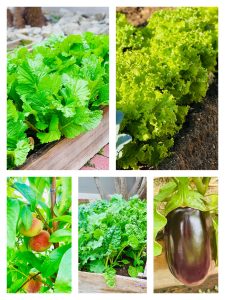Type de Concertation
Coordonnateur
Langue de l'événement de Concertation
Date/heure
À:
Ville
Cible géographique
Format
Veuillez consulter les détails ci-dessous pour obtenir des renseignements sur l’inscription, s’ils sont disponibles, ou communiquer avec le coordonnateur si vous souhaitez y assister.
Description
Despite progress made over the past few decades, about 767 million people globally continue to live in extreme poverty, half of them in Africa (FAO, 2018). The majority of Africa’s poor and hungry live in rural areas and depend on agriculture for their livelihood. However, their livelihoods are often constrained by limited access to resources, services, technologies, markets, and economic opportunities, lowering their productivity and income. Rapid population growth, youth unemployment, conflict, civil unrest, climate change, and environmental degradation exacerbate the situation. In addition, the COVID-19 pandemic has further threatened Africa’s food systems and the livelihoods of the most vulnerable.
Through the African Union’s Agenda 2063, the 2014 Malabo Declaration, and the UN SDGs, African leaders have resolved to transform food systems on the continent including ending hunger and improving food security and nutrition for all. Nevertheless, the Second Biennial Report reveals that Africa is not on track to achieve the Malabo Declaration’s commitment to ending hunger by 2025 (AUC, 2020). The resilience of Africa’s food systems needs to be strengthened in such a way that the economic, social, and environmental foundations to produce sufficient nutritious food are not compromised for future generations. It demands a comprehensive approach that integrates responses to climate, biodiversity loss, conflict, pandemics, economic crises, food insecurity, malnutrition, and considering poverty, inequalities, and poor land use and distribution as structural root causes of increased hunger.
It is against this background that the Food, Agriculture, and Natural Resources Policy Analysis Network (FANRPAN) and AKADEMIYA 2063 are convening this dialogue to enhance regional advocacy in support of the Food Systems Summit engagement process specifically focusing on Action Track 5: Build resilience to vulnerabilities, shocks, and stress.
More specifically the dialogue seeks to convene a broad group of African stakeholders including the private sector, civil society, farmers’ groups, policymakers, and the research and academic community to:
- Deliberate on challenges and opportunities to transforming African food systems and ensuring that they are sustainable and resilient;
- Showcase best practices, lessons learned, technological innovations, collaborations, and policies in transforming food systems;
- Identify game-changing solutions (e.g., emerging best practices, research evidence, conceptual frameworks, etc.) from across the continent that is actionable, sustainable, and can have an impact at scale in terms of building the resilience of African food systems to vulnerabilities, shocks, and stress;
- Discuss the role of high-level African champions that can advance the African perspective and “solutions” coming out of the regional food system dialogues.
Remerciements


